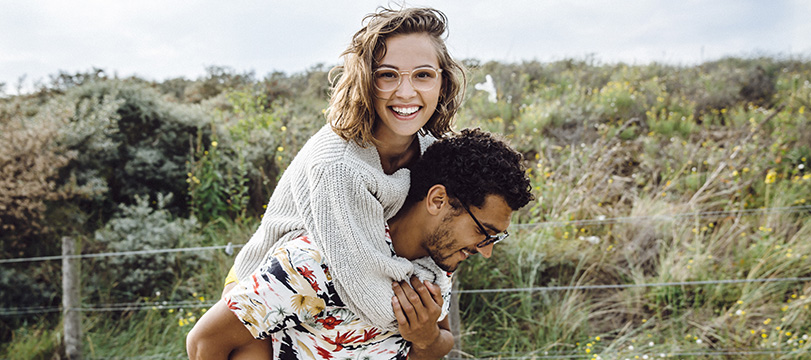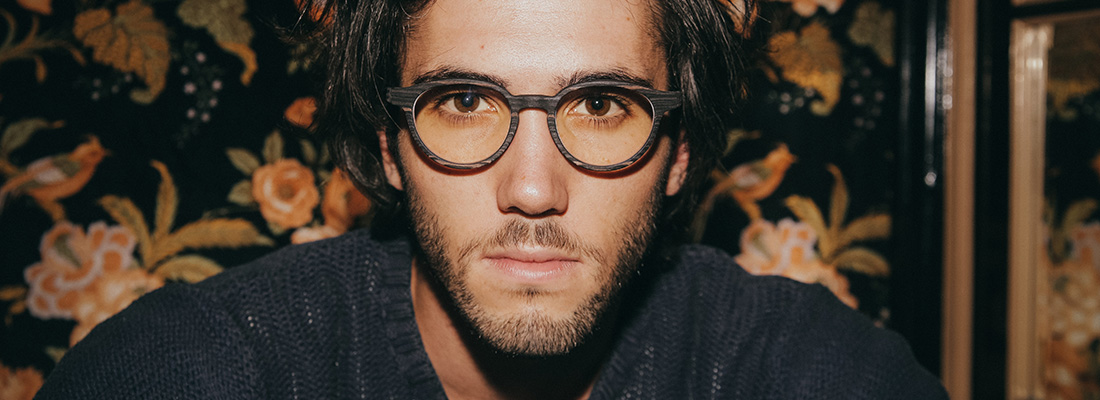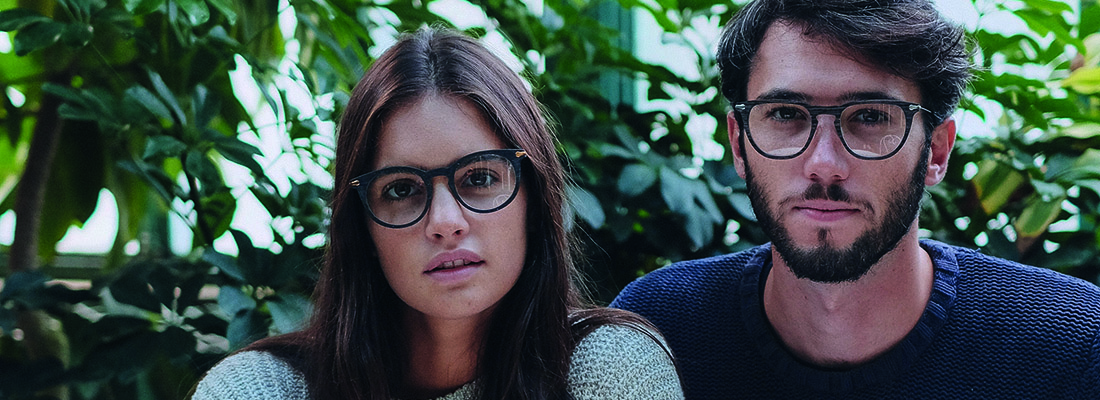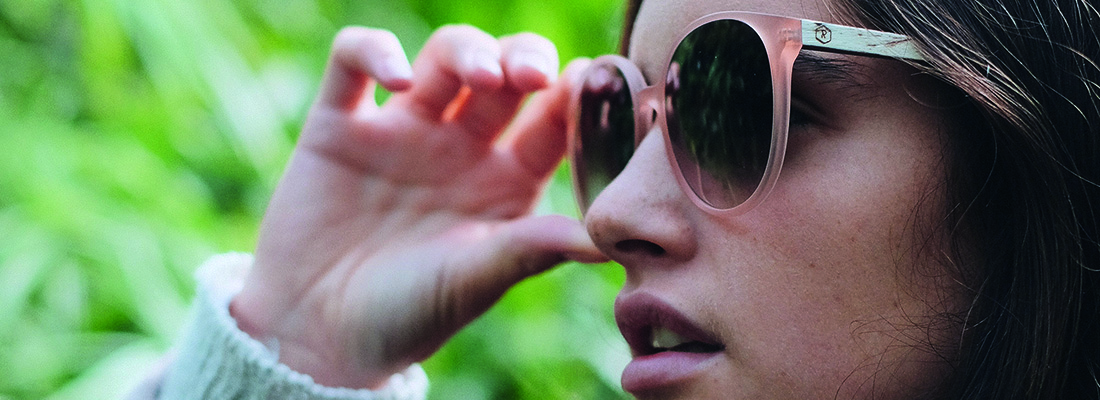
03:56 -
© Dick Moby
Responsible consumerism is both a fashion phenomenon and a societal shift. It’s great for your woke credentials to be able to say that your new specs were crafted from recycled wood sourced in a far-off land, but even better than that, it makes good sense. Making more informed and responsible decisions about what we buy is good for the environment and it’s also good for our own wellbeing. We all know that we are what we eat, but we are also what we consume, in a much wider sense.
Responsible consumerism is not only about being careful about what we buy. It also means being informed about how the product was made, the values of the company selling it, the way we are going to use it and what we will do with it after we have finished using it. It’s a complete process. Glasses are no exception, increasingly, eyewear manufacturers are committing to more responsible processes and practices. And with good reason.
We change our glasses frequently; we refresh our frames and update our lenses. A new pair of sunglasses for this year’s vacation, a new look for the new year. Our cupboards fill, old glasses are discarded.
Glasses are an essential in our daily lives, an extension of ourselves. For many of us, they are worn almost permanently, the frames constantly in contact with our noses, our temples, our ears. But do we think enough about the materials that we are putting in direct contact with our skin and their effects on our bodies?

© Dick Moby
The rising star of responsible glasses is undoubtedly, wood. Comfortable to wear, resistant and very light, wood makes for both an ecologically sound and aesthetic choice. From raw simplicity to upscale refinement; natural shades to all sorts of different colors, wood is versatile. And frames are most often made using craft techniques, by hand. Artisan gasses-maker Gold & Wood skillfully blends wood and gold in a mash-up of nature and luxury. Austrian brand Rolf Spectacles and French brand Rezin both create glasses in wood and stone. Woodluns makes wooden glasses that are 100% handmade and 100% locally made in the Ardèche region of France. Amongst the woods used, bamboo is increasingly popularfor its eco-credentials, exceptional strength – it bends but rarely breaks- and aesthetic appearance. It’s a material that’s very light and extremely versatile, with which designers can really put their creativity to the test.

© Rezin
Two great young brands are currently making glasses out of plastic ocean refuse. Karün uses the plastic from discarded fishing nets found on the Chilean coast, while Dick Moby makes glasses from recycled plastic bottles and biodegradable acetate.
Hemp was one of the first plants discovered in France, well before the Middle Ages, and has today become one of the key plants in the sustainable development movement. Growing hemp is healthy and completely natural, hemp is good for the earth and consumes very little water, absorbs carbon and can grow at all latitudes in all temperate regions of the globe. The multi-function plant is used in textiles, isolation, to make paper pulp, as an oil in cosmetics and food and, for a few years now, to make glasses. Sam Whitten founded the brand Hemp, made exclusively in Great Britain, where he makes glasses by putting together different layers of hemp and linen fiber, that are then covered in a bio-ecological resin.
Horn is also slowly starting to make an appearance on the glasses market. Buffalo horn is mainly used, as a very high-quality, completely natural and traceable material. Soft to the touch and very light, horn is extremely comfortable to wear and it’s also an unstable material, on which marks only remain for a few weeks. France’s horn specialist is Cornibus, a label that works horn in all ways, as well as Xavier Christin, a ‘meilleur ouvrier de France’ glasses-maker, who has worked with buffalo and zebu horn to make bespoke spectacles.
Another French brand has had the crazy idea to spend a year in research and development to create glasses made out of seaweed. An inexhaustible, quickly renewable and compostable crop, seaweed does not need any chemical intervention to grow, nor does it consume any water. The label is Naoned, based in Brittany, and the collection is called Dôn, which literally means ‘sea goddess’.

© Rezin
Materials and manufacturing process are the first step. Next, comes the brand from which we buy, its own commitment, the values it lives by and its concrete actions in favor of responsibility. Shwood, for example, selects wood only from official plantations in support of the fight against deforestation. Time for Wood believes that we should automatically give back to nature everything that we take from it and has teamed up with Trees For The Future to plant a tree for each pair of glasses sold.
In’Bô has chosen to focus on French expertise and makes everything in the Vosges region, Stronge Froots offers a collection of glasses made from ‘second life’ wood, crafted from slats of ash thrown out in household waste. Finally, 7PLIS creates premium glasses, made in France, recycled from old skateboards.

© Rezin
It’s not about telling you not to buy glasses any more, to hold onto your grandmother’s old frames, or to work out the cost-per-wear of your sunglasses over 50 years, on the contrary. Glasses are such an integral part of our personality, that it’s important – essential, even – to feel free to change them as you would your hairstyle. The idea is to consume more respectfully.
We took a closer look at ecological materials and eco-responsible labels, but now let’s talk about what you can do with old frames that you don’t use any more.
You can also donate your glasses to humanitarian organization, via your optician (like Krys, for example), or directly to charities like Lunettes Sans Frontières, who collect glasses to send to clinics and dispensaries in Africa, South America and Asia. Medico Lions Clubs also does this, across five continents, to support 53 countries, with 5 million pairs of glasses to date.
Finally, if you have vintage glasses, head to Dingues De Lunettes. A team passionate about vintage frames will restore your glasses and sell them for you and it’s also a great place to go to source your own period glasses.
The solutions are out there and there are more available all the time. As consumers, we have no excuse not to make their next pair of glasses eco-responsible and do good both for the earth’s environment and our own.